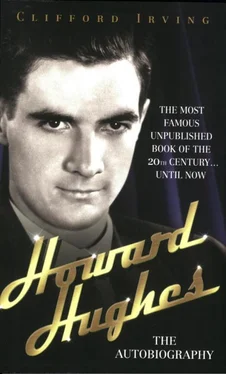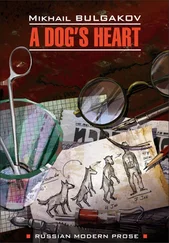I knew by now that Sai Baba was a poor man, didn’t want worldly goods other than what he needed to live in simple comfort. Some of his better-off Indian and Western followers gave him money, but he put almost all of that into the physical upkeep of the ashram or the construction of a little hospital he was setting up there, or he fed and clothed beggars and found little jobs for them at the construction site. For himself he kept just what he needed to eat and buy a new robe now and then. He was a very clean-looking man. He smelled of spices. I liked that.
So I wasn’t surprised by the sparseness of the furnishings inside the temple. Sai Baba sat on a cane floor mat in the lotus position, in front of me. He offered me a stiffbacked cane chair – no way I could ever have got into the lotus position like he did. He knew that. I sat down. He made the sign of welcome by placing his palms together, smiled at me, and said, ‘Is there anything you would like to ask me?’ ‘Yes. Why do you go through all that hocus-pocus,’ I said, ‘with the manifesting of ash and jewelry?’
His smile grew broader. ‘You think that’s hocus-pocus?’
‘What else?’
‘What’s wrong with a little hocus-pocus?’ he asked. ‘Does it harm anyone?’
I laughed. ‘I guess not. Maybe you need to do it to impress a certain kind of person. Means to an end. I can understand that.’
Still smiling, he reached out to my ear and pulled a handful of dark ash, what they called vibhuti , out of it, or out of the air, or out of his sleeve; who knows. ‘Here,’ he said. He pressed it into my palm. ‘You keep this handful of “means to an end.” Eat it, or anoint yourself with it, or throw it away. Do whatever you like with it.’
I laughed again, mumbled a kind of thank-you and put it in my pants pocket.
‘Now may I ask you a question, sir?’ Sai Baba said.
‘Absolutely.’
‘In the years left to you, if you knew beyond doubt that you wouldn’t fail, what is the one thing that you would do?’
I was stunned into silence. I knew right away he had asked me the most intelligent question that you could ask any human being beyond the age of puberty. All the inessentials fell away. TWA, the various lawsuits, the default judgment, the SST, Las Vegas as the port of entry, Hughes Aircraft, Toolco – none of them rose to the mark. Not even life with Helga.
‘You don’t have to answer now,’ Sai Baba said. He rose to his feet – not all that easily, I realized, because he was a bit overweight. I got up too. He made the sign of farewell by placing his palms together. I did the same. He had never asked me my name. He’d never asked who I was or what I did. He’d only asked that one question. At the door to the temple, as I was about to step outside into the hot evening, he placed a sweaty hand on my shoulder, and he said softly, ‘Don’t forget.’
I went to one more darshan before I left Puttaparti, but I realized that for the moment there was little more I could gain by being there. I also realized I didn’t have to say goodbye to Sai Baba. He didn’t expect it.
I hired another porter, waded across the Chittravati River in the other direction, found someone to drive me to Bangalore, and flew to New Delhi. There was a message from Helga waiting for me at my hotel. She said she was coming to India to spend a week with me, and if I left New Delhi I should leave a message for her where I’d be. She was due to arrive on Swissair from Geneva the following day.
I took a long hot bath to wash off the dirt of southern India, then a long cool shower to refresh myself, and then I sent for the maid to pick up my dirty clothes. Just before I handed my things to her I remembered what I had in the pocket of my old pants. I had all that vibhuti Sai Baba had ‘manifested’ and given to me. I poured it out into an ash tray before I stuffed the pants into the plastic laundry bag.
I decided to meditate for a while. By then I’d learned that meditation was a process to clear your mind, not to analyze what you thought were your problems, and you accomplished this by sitting still and silently saying a meaningless short word, which they called a mantra, over and over again. That way your mind became a blank receptacle, and if you were ready, good things entered in it. In the least, you were refreshed. It was like a fast, where you eat nothing and cleanse your guts – in meditation you cleansed your mind.
Then I remembered the vibhuti . What was I going to do with it? I could throw it out, but that troubled me, because he’d given it to me just before he’d asked me that big question. I could take it back with me to Nevada, but what was I supposed to do with it there? Put it in an urn and worship it? That seemed ridiculous. Or I could use it. How should I use it? I wasn’t going to eat it; it was ash, and I might choke to death. The other thing I’d seen people do was rub it all over their bodies. I hesitated, because if I did that, I’d be dirty again. But what the hell, I thought, I could take another bath when I finished meditating. I had nothing else to do until Helga arrived.
I smeared the vibhuti all over my chest and forehead. It had a soft, powdery texture, not harsh at all. It smelled slightly of spice. Then I sat down in a chair to meditate.
What happened next is hard to explain. You probably won’t believe it. Part of this is clear to me, but part is vague. Kind of shadowy.
I dimly remember leaving the hotel. I remember renting a chauffeured car. I hardly remember the journey at all. I must have slept on the way. I remember arriving again in Benares, where I spent the night, what was left of the night, I’m not sure. I had no luggage – I found that out later. I don’t remember going down to the river, but it’s clear that I must have done so, probably under my own steam – the car and driver definitely didn’t take me – because I remember arriving there, by the Ganges, probably before dawn. I remember the darkness and the smells of incense, mud, and burning wood.
I sat down in the dirt by the river. Before that, as I told you, I couldn’t get into the lotus position, but now I did it, or at least a fair approximation of it. My legs were crossed in front of me, and my hands were in what I’d have to describe as a cupped position, also in front of me.
I wore only my undershorts. They were white Jockey shorts. I didn’t have another blessed thing on my body. No shirt, no socks and shoes, no pants, no hat. Just my white undershorts.
Do you see the picture I’m painting for you? I was thin, almost scrawny. I had long hair, even longer than it is now. It fell almost to my shoulders. I had a beard. And all my hair, of course, was gray, a pale shade of gray. I was not a thing of beauty.
I looked like a beggar. I was sitting there by the Ganges, in a trance, in beggar’s clothes and in a beggar’s position.
Now, as I may have told you, the riverside was full of beggars. They didn’t do very well except when an occasional tourist gave them a dollar – they could eat for a day or two on a dollar – in the hope that they’d go away. I, on the other hand, was sitting there cross-legged in my Jockey shorts, with my hands forming a little cup in front of me. I didn’t importune anyone, I didn’t clutch at them, I didn’t even ask. I just sat there, meditating. And I was deluged with money. With dollars, with rupees, with English pounds, with yen, with marks and francs. People couldn’t pass by without giving me something. Indians, Asians, Europeans – everyone gave.
You see, money just gravitates to some people, whether they’re accumulating TWA stock or sitting by the side of a muddy river in India. They’re money magnets, and money is like metal shavings. I’m one of those people. I can’t help it.
Читать дальше












